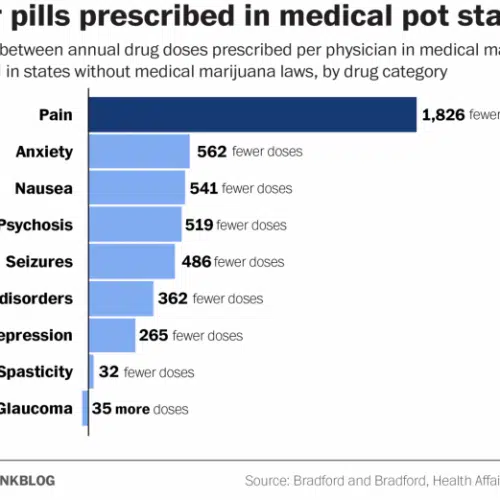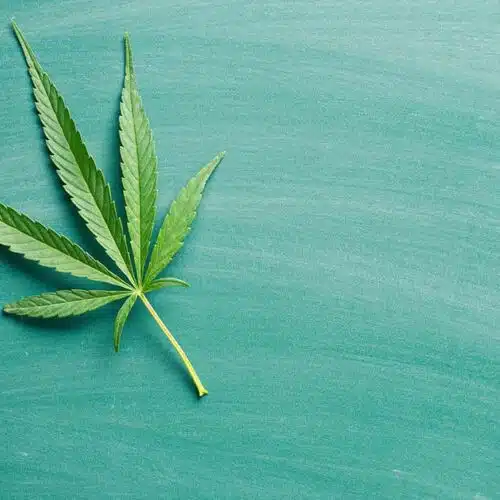Medical Marijuana Replaces Prescription Drugs
A new survey conducted by the Centre for Addictions Research of British Colombia showed that 80% of patients substituted prescription drugs with cannabis. With legalization, more and more people are discovering how cannabis can provide a safe alternative to pharmaceuticals. This is an especially good time for this research to be released with medical and recreational cannabis on the ballot in record numbers this November.
The survey was composed of 473 adult medical marijuana users and found that 87% of respondents gave up prescription medications, alcohol, or other drugs in favor of cannabis. The study showed that adults under 40 were more likely to give up all three of these for medical cannabis.The most surprising revelation, and the one that will have the biggest impact on pharmaceutical companies, is that 80% of respondents reported substituting cannabis for prescription drugs. In addition, 52% said they substituted cannabis for alcohol and 32% said they substituted it for illicit substances. These results indicate a shift, people moving away from dangerously addictive and potentially deadly substances in favor of a medicinal plant, that has never caused an overdose death.
The Cannabis Access for Medical Purposes Survey
“The Cannabis Access for Medical Purposes Survey is a 414-question cross-sectional survey that was available to Canadian medical cannabis patients online and by hard copy in 2011 and 2012 to gather information on patient demographics, medical conditions and symptoms, patterns of medical cannabis use, cannabis substitution and barriers to access to medical cannabis.The finding that cannabis was substituted for all three classes of substances suggests that the medical use of cannabis may play a harm reduction role in the context of use of these substances, and may have implications for abstinence-based substance use treatment approaches. Further research should seek to differentiate between biomedical substitution for prescription pharmaceuticals and psychoactive drug substitution, and to elucidate the mechanisms behind both.”
Medical Cannabis and Prescription Use
Another study, released in the journal Health Affairs, shows the correlation between medical marijuana legalization and prescriptions doses written. Ashley Bradford and W. David Bradford, researchers at the University of Georgia, went through the database of all prescription drugs paid for under (Medicare Part D) from 2010 to 2013.
After looking at the numbers, they found that in the 17 states with a medical-marijuana laws, prescriptions for painkillers and other drugs fell drastically compared with states that don’t offer medical-marijuana as a legal option. In medical-marijuana states, on average, doctors prescribed 265 fewer doses of antidepressants each year, 486 fewer doses of seizure medication, 541 fewer anti-nausea doses and 562 fewer doses of anti-anxiety medication.
The biggest drop in prescriptions, was where it is most needed, from a public safety standpoint: Pain Medication. Doctors in states with medical-marijuana as an option, prescribed 1,826 fewer doses of painkillers in a given year.
Financial Benefits of Medical Marijuana
Not only does this information show that medical marijuana is an asset to public health, it also shows the financial benefits of medical marijuana. The savings, due to lower prescription drug use, were estimated to be $165.2 million in 2013, at that time 17 states and the District of Columbia had implemented medical marijuana laws. If the entire country had implemented medical marijuana, the overall savings to Medicare would have been around $468 million in 2013.



